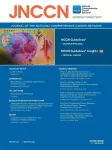(Press-News.org) Alzheimer’s disease has plagued one large Colombian family for generations, striking down half of its members in the prime of life. But one member of that family evaded what had seemed would be fate: Despite inheriting the genetic defect that caused her relatives to develop dementia in their 40s, she stayed cognitively healthy into her 70s.
Researchers at Washington University School of Medicine in St. Louis now think they know why. A previous study had reported that, unlike her relatives, the woman carried two copies of a rare variant of the APOE gene known as the Christchurch mutation. In this study, researchers used genetically modified mice to show that the Christchurch mutation severs the link between the early phase of Alzheimer’s disease, when a protein called amyloid beta builds up in the brain, and the late phase, when another protein called tau accumulates and cognitive decline sets in. So the woman stayed mentally sharp for decades, even as her brain filled with massive amounts of amyloid. The findings, published Dec. 11 in the journal Cell, suggest a new approach to preventing Alzheimer’s dementia.
“Any protective factor is very interesting, because it gives us new clues to how the disease works,” said senior author David M. Holtzman, MD, the Barbara Burton and Reuben M. Morriss III Distinguished Professor of Neurology. “As people get older, many begin to develop some amyloid accumulation in their brains. Initially, they remain cognitively normal. However, after many years the amyloid deposition begins to lead to the accumulation of the tau protein. When this happens, cognitive impairment soon ensues. If we can find a way to mimic the effects of the APOE Christchurch mutation, we may be able to stop people who already are on the path to Alzheimer’s dementia from continuing down that path.”
Alzheimer’s develops over the course of about 30 years. The first two decades or so are silent; amyloid slowly accumulates in the brain without causing ill effects. When amyloid levels reach a tipping point, however, they kick off phase two, which involves multiple interrelated destructive processes: A protein called tau forms tangles that spread through the brain; brain metabolism slows down, and the brain begins to shrink; and people start to experience memory and thinking problems. The disease follows the same pattern in people with genetic and nongenetic forms of Alzheimer’s.
The Colombian families carry a mutation in a gene called presenilin-1 that causes their brains to develop far too much amyloid buildup beginning in their 20s. People who carry the mutation accumulate amyloid so quickly that they reach the tipping point and start showing signs of cognitive decline in middle age. One rare exception is a woman who had more amyloid in her brain in her 70s than her relatives did in their 40s, but only very minimal signs of brain injury and cognitive impairment.
“One of the biggest unanswered questions in the Alzheimer’s field is why amyloid accumulation leads to tau pathology,” Holtzman said. “This woman was very, very unusual in that she had amyloid pathology but not much tau pathology and only very mild cognitive symptoms that came on late. This suggested to us that she might hold clues to this link between amyloid and tau.”
A 2019 study had revealed that, along with a mutation in presenilin-1, the woman also carried the Christchurch mutation in both copies of her APOE gene, another gene associated with Alzheimer’s disease. But with only one person in the world known to have this particular combination of genetic mutations, there were not enough data to prove that the Christchurch mutation was responsible for her remarkable resistance to Alzheimer’s and not simply a coincidental finding.
To solve this puzzle, Holtzman and first author Yun Chen, a graduate student, turned to genetically modified mice. They took mice genetically predisposed to overproduce amyloid and modified them to carry the human APOE gene with the Christchurch mutation. Then, they injected a tiny bit of human tau into the mouse brains. Normally, introducing tau into brains already brimming with amyloid seeds a pathological process in which tau collects into aggregates at the site of injection, followed by the spread of such aggregates to other parts of the brain.
Not so in the mice with the Christchurch mutation. Much like the Colombian woman, the mice developed minor tau pathology despite extensive amyloid plaques. The researchers discovered that the key difference was the activity levels of microglia, the brain’s waste-disposal cells. Microglia tend to cluster around amyloid plaques. In mice with the APOE Christchurch mutation, the microglia surrounding amyloid plaques were revved up and hyperefficient at consuming and disposing of tau aggregates.
“These microglia are taking up the tau and degrading it before tau pathology can spread effectively to the next cell,” Holtzman said. “That blocked much of the downstream process; without tau pathology, you don’t get neurodegeneration, atrophy and cognitive problems. If we can mimic the effect that the mutation is having, we may be able to render amyloid accumulation harmless, or at least much less harmful, and protect people from developing cognitive impairments.”
END
Clues to preventing Alzheimer’s come from patient who, despite genetics, evaded disease
Breaking link between early, late stages of disease may prevent dementia
2023-12-11
ELSE PRESS RELEASES FROM THIS DATE:
Hungarian scientists prove that senescence can accelerate evolution
2023-12-11
The mystery of aging has fascinated people for millennia, with many willing to do anything to halt or reverse this process, because aging is typically associated with gradual deterioration of most body functions. While senescence is a natural part of life, biologists understand surprisingly little about the emergence of this process during evolution. It is not clear whether aging is inevitable, because there are organisms that seemingly do not age at all, moreover, the phenomenon known as negative aging, or rejuvenation, does exist: some turtles’ vital functions improve ...
Real world data shows impact of immunotherapy in populations underrepresented in clinical trials, according to JNCCN study
2023-12-11
PLYMOUTH MEETING, PA [December 11, 2023] — New research in the December 2023 issue of JNCCN—Journal of the National Comprehensive Cancer Network finds patients treated with first-line immunotherapy for advanced Non-Small Cell Lung Cancer (NSCLC) showed similar results in terms of survival, progression-free survival, and treatment duration, regardless of race or ethnicity, even with differences in income and insurance. The clinical investigators focused on patients in under-represented groups who were typically less likely to be included in the immunotherapy clinical trials that have been conducted ...
Research by Sylvester, collaborators leads to new treatment options for advanced myelofibrosis, other blood malignancies
2023-12-11
DOWNLOADABLE VIDEO
MIAMI, FLORIDA (EMBARGOED UNTIL MONDAY, DEC. 11, 2023, AT 2:45 P.M. ET) – Few standard treatments have been available for advanced myelofibrosis, a bone marrow disorder characterized by excessive scar tissue that disrupts the normal production of blood cells
But new research conducted by investigators at Sylvester Comprehensive Cancer Center at the University of Miami Miller School of Medicine and collaborating cancer centers indicates that a new type of targeted therapy may ...
A new mechanism by which rotavirus makes you sick
2023-12-11
Rotavirus causes gastroenteritis, a condition that includes diarrhea, deficient nutrient absorption and weight loss. Severe cases result in approximately 128,000 deaths annually in infants and children worldwide. Despite intense research on how rotavirus causes diarrhea, there is still no complete answer, but in this new study researchers at Baylor College of Medicine report a new mechanism by which rotavirus induces diarrhea, interfering with the normal absorption of nutrients in the intestine.
The study, published in Proceedings of the National Academy of Sciences, is the first to show that rotavirus-altered lipid metabolism in the intestine plays a ...
Portable, non-invasive, mind-reading AI turns thoughts into text
2023-12-11
In a world-first, researchers from the GrapheneX-UTS Human-centric Artificial Intelligence Centre at the University of Technology Sydney (UTS) have developed a portable, non-invasive system that can decode silent thoughts and turn them into text.
The technology could aid communication for people who are unable to speak due to illness or injury, including stroke or paralysis. It could also enable seamless communication between humans and machines, such as the operation of a bionic arm or robot.
The ...
Tirzepatide enhances weight loss with sustained treatment but discontinuation leads to weight regain
2023-12-11
Tirzepatide Enhances Weight Loss with Sustained Treatment but Discontinuation Leads to Weight Regain
The current class of anti-obesity drugs is proving remarkably effective at removing excess pounds. However, a phase 3 randomized clinical trial led by researchers at Weill Cornell Medicine and NewYork-Presbyterian found that people who stopped taking the medication regained much of that weight within a year. At the same time, the study shows that remaining on the drug not only promotes additional weight loss but preserves improvements in metabolic and cardiovascular health.
The results from the SURMOUNT-4 study, which appeared Dec. ...
Scholars named for research leadership program to increase diversity in clinical trials
2023-12-11
DALLAS, Dec. 11, 2023 — The American Heart Association — the world’s leading voluntary organization dedicated to a world of longer, healthier lives for all — continues its commitment to address the lack of diversity, equity and inclusion in clinical trials for medical research with the selection of two early-career scientists for the inaugural Robert A. Winn Clinical Investigator Leadership Award in Cardiovascular Research (Winn CILA-CV). The award is sponsored by the Bristol Myers ...
Venetoclax with standard chemo-immunotherapy induced a high response rate as first-line treatment for mantle cell lymphoma and was generally well tolerated, a PrECOG early-phase trial shows
2023-12-11
The phase 2 trial PrE0405 met its primary endpoint, achieving a complete response (CR) rate of 85% in 33 patients over the age of 60 with mantle cell lymphoma (MCL) who received bendamustine and rituximab, a standard chemo-immunotherapy treatment, along with venetoclax, which is investigational in this setting. The combination was generally well-tolerated, a notable finding according to Craig A. Portell, MD, who presented the data for PrECOG, LLC, at the 65th American Society of Hematology (ASH) Meeting and Exposition in San Diego, California, ...
Schedule of sessions and press registration information now available for the ILSI 2024 Annual Meeting and Science Symposium
2023-12-11
FOR IMMEDIATE RELEASE
December 11, 2023
ILSI Global press contact:
Katherine Broendel
+1 (202) 659-0074 Ext. 175
kbroendel@ilsi.org
WASHINGTON—The International Life Sciences Institute (ILSI) has announced that its Annual Meeting, Technologies and Climate Change: Shaking up 21st Century Food Systems – Promises and Pitfalls, will take place in Clearwater, Florida, 21-24 January 2024. ILSI's Annual Meeting will feature scientific presentations, professional development and networking opportunities for researchers, academics, industry leaders, nongovernmental organizations, as well as public sector and ...
Madden studying merchants, maps & manuscripts of late medieval world
2023-12-11
Amanda Madden, Assistant Professor, History and Art History; Director, Geospatial History, received funding for the project: "La sfera (The Globe): A Late Medieval World of Merchants, Maps, & Manuscripts."
In collaboration with the project team, Co-PI Madden, Senior Developer Jason Heppler, and the Roy Rosenzweig Center for History and New Media (RRCHNM) propose to design and develop a digital edition of the text, including the user interface and data pipeline.
The NEH grant will fund the development of a dynamic, interactive ...
LAST 30 PRESS RELEASES:
Duke-NUS scientists identify more effective way to detect poultry viruses in live markets
Low-intensity treadmill exercise preconditioning mitigates post-stroke injury in mouse models
How moss helped solve a grave-robbing mystery
How much sleep do teens get? Six-seven hours.
Patients regain weight rapidly after stopping weight loss drugs – but still keep off a quarter of weight lost
GLP-1 diabetes drugs linked to reduced risk of addiction and substance-related death
Councils face industry legal threats for campaigns warning against wood burning stoves
GLP-1 medications get at the heart of addiction: study
Global trauma study highlights shared learning as interest in whole blood resurges
Almost a third of Gen Z men agree a wife should obey her husband
Trapping light on thermal photodetectors shatters speed records
New review highlights the future of tubular solid oxide fuel cells for clean energy systems
Pig farm ammonia pollution may indirectly accelerate climate warming, new study finds
Modified biochar helps compost retain nitrogen and build richer soil organic matter
First gene regulation clinical trials for epilepsy show promising results
Life-changing drug identified for children with rare epilepsy
Husker researchers collaborate to explore fear of spiders
Mayo Clinic researchers discover hidden brain map that may improve epilepsy care
NYCST announces Round 2 Awards for space technology projects
How the Dobbs decision and abortion restrictions changed where medical students apply to residency programs
Microwave frying can help lower oil content for healthier French fries
In MS, wearable sensors may help identify people at risk of worsening disability
Study: Football associated with nearly one in five brain injuries in youth sports
Machine-learning immune-system analysis study may hold clues to personalized medicine
A promising potential therapeutic strategy for Rett syndrome
How time changes impact public sentiment in the U.S.
Analysis of charred food in pot reveals that prehistoric Europeans had surprisingly complex cuisines
As a whole, LGB+ workers in the NHS do not experience pay gaps compared to their heterosexual colleagues
How cocaine rewires the brain to drive relapse
Mosquito monitoring through sound - implications for AI species recognition
[Press-News.org] Clues to preventing Alzheimer’s come from patient who, despite genetics, evaded diseaseBreaking link between early, late stages of disease may prevent dementia



